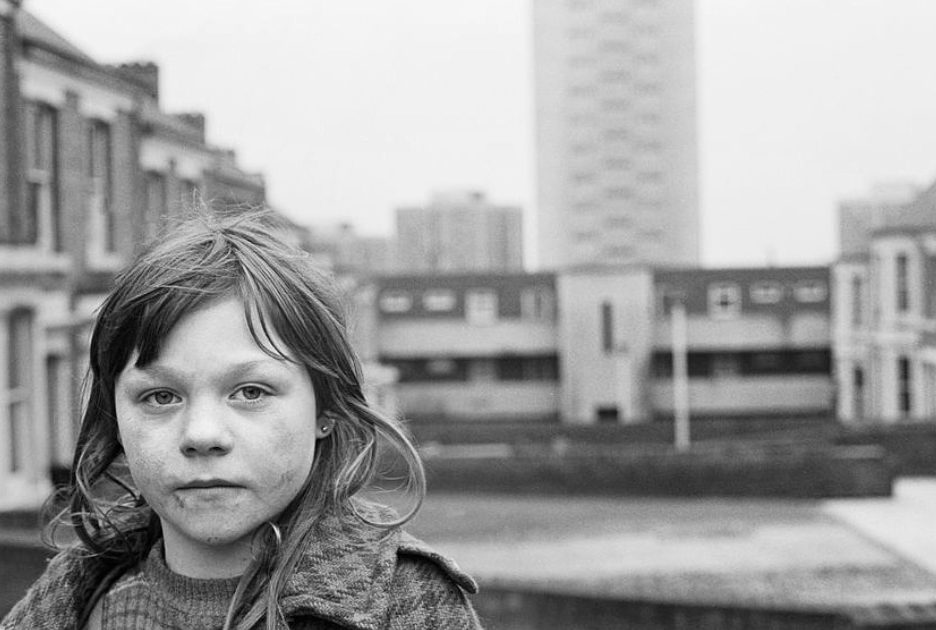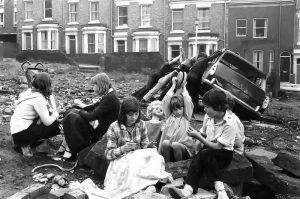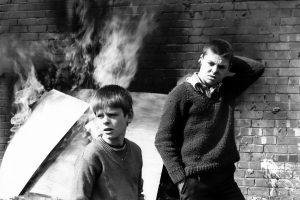Curators' Pick
Tish Murtha | Elswick Kids | 1978

Tish Murtha | Elswick Kids | 1978
All we wanted was everything. All we ever got was coal.
(Bauhaus, from the album The Sky’s Gone Out, 1982)
Patricia Anne “Tish” Murtha (1956 – 2013) was a British photographer best known for her images of working class life in Newcastle upon Tyne and the North East of England. Murtha’s work is a raw documentation of these communities – and often youth within these social groups – at a time when British Prime Minister Margaret Thatcher waged war on her own citizens, embracing a neo – liberal cruelty that is like a virus whose symptoms can be still seen in contemporary post Brexit Britain.
The images captured by Murtha evoke notions of a ‘third world’ country, with the scenes of desolate and despairing youth amidst a wasteland that – being shot in black and white – emit a hopelessness that reaches across the decades. Or perhaps it is simply combining with the contemporary desperation among working class communities in these places right now.
- Elswick Kids, 1978
- Elswick Kids, 1978
- Elswick Kids, 1978
- Juvenile Jazz Bands, 1979
- Youth Unemployment, 1981
- Youth Unemployment, 1981
From here : “In 1976, aged 20, Tish left home to study at the famous School of Documentary Photography at The University of Wales, Newport under the guidance of Magnum member David Hurn.
She took many photos in Newport, including The former Prime Minister James Callaghan opening up a new stretch of the M4, as well as documenting Aubrey Hames’ year as Mayor of Newport in the Queens Silver Jubilee year (1977-1978). Tish also worked with the South Wales Argus during this time and photographed the local election campaigns.
When she returned to Newcastle, she began to document the lives of her friends and family and numerous other projects.
Tish’s work was often concerned with the documentation of marginalized communities from the inside. She invested her time building relationships of trust, which allowed her access to different parts of the communities that she photographed. Her approach was informal, generating an understanding of what she was doing by giving copies of her photos to the people in them. The young people she photographed as part of the Youth Unemployment and Juvenile Jazz Band exhibitions showed how tenacious, resourceful, clever and resilient they were (and had to be) – Tish was always fiercely protective of them.
She felt she had an obligation to the people and problems within her local environment, and that documentary photography could highlight and challenge the social disadvantages that she herself had suffered.”
Three books of her photographs have been published posthumously : these are Youth Unemployment (2017), Elswick Kids (2018) and Juvenile Jazz Bands (2020).
More of Tish Murtha’s work and her life (as her daughter is maintaining her archive and ensuring her mother’s work is given its appropriate place in terms of history and art) can be seen here.
~ Bart Gazzola





